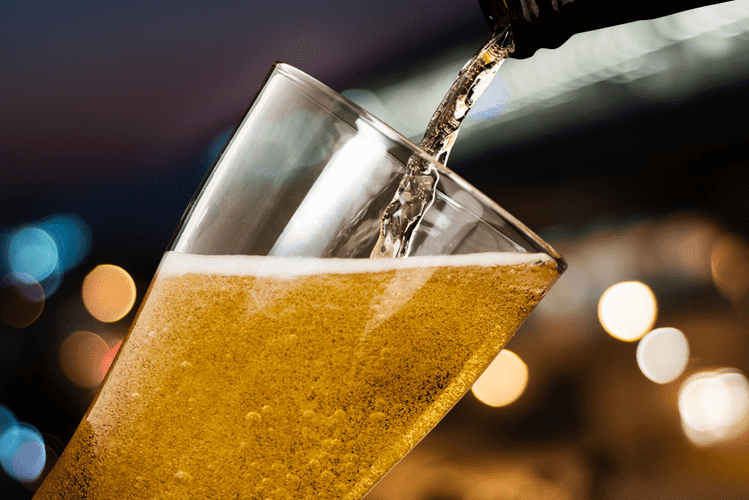Weitere TS-Nachrichten

3 Ways to Tell if You Are Codependent
ContentsDealing With a Codependent RelationshipRecognizing and Overcoming Codependency at The...
Contents
The alcoholic or substance user is the actor outer, and the codependent becomes the reactor. This article was co-authored by Elizabeth Weiss, PsyD. Dr. Elizabeth Weiss is a licensed clinical psychologist in Palo Alto, California. In 2009 at Palo Alto University’s PGSP-Stanford PsyD Consortium.

This may leave you drained, overwhelmed, and even resentful or angry. Occasionally depending on others — and allowing them to depend on you — for help and support is perfectly valid. You can depend on someone for some things while still maintaining your own identity and sense of self. These themes can show up across various types of relationships — and even in the way you relate to yourself.
Content is reviewed before publication and upon substantial updates. But if you seek out, maintain, or even feed off relationships that are not fulfilling or healthy, you could be codependent. Once codependency is identified, it can be successfully treated, Becker says.
Dealing With a Codependent Relationship
“Most contributing factors to this condition begin with parents who, for one reason or another, have poor boundaries,” Botnick explains. And when your needs continually go unmet, you become unable to assert yourself or even know what you should ask for, she says. You don’t eat meat, but you decide to also give up dairy for their sake, even though they didn’t ask. Their main interests — sci-fi dramas, backpacking, and craft beers — become your chief hobbies, and you adopt their friends as your own. Codependency can leave you feeling as if you lack purpose when you aren’t providing support. But fully devoting yourself to others may prevent you from doing anything for yourself.
Often, feeling guilty, the child will reassure the parent that this isn’t a big deal and that they really want to do it. The parent gets the play-by-play without having to feel guilty about it because the child reassured them it wasn’t a big deal. If you think you may be a codependent parent, here are some signs to look out for. Today, though, the term has broadened to include relationships.
This typically comes from childhood, when the caretaker learns there may be terrible consequences from failing to take care of a parent’s needs. As a result, she may feel compelled to take care of others, especially a partner, not so much out of affection, but from the fear that something bad will happen if she doesn’t. Most people can get by fairly well on their own, and feeling like things will go terribly wrong if you don’t take care of them is often a sign of codependency. “Anyhealthy relationship will have some codependency and give and take,” he explains.
- These dysfunctional relationship patterns are signs of codependency.
- A therapist can help you understand your relationship and navigate your way out of codependency.
- Especially if you are not able to see the codependent patterns from an objective point of view.
- In other words, codependency is caused by an underlying sense of self-rejection and self-abandonment.
Here, we’ve reviewed the current best online therapy platforms… “If you are abusing drugs or alcohol, talk to your doctor about treatment options,” he says. “This holds for the other partner, too, as there are support groups and resources for family members affected by substance abuse, such as Al-Anon. Do you believe that you need to be available 24/7 for your child? If you’re a codependent parent, the first relationship that’ll likely suffer is your relationship with your partner. While codependent parents may claim that the close relationship they covet is a sign of a well-functioning family, their preoccupation with each other is a sign of dysfunction.
Both partners feed into the other’s need for approval, because they need that approval to feel good about themselves. For people who are codependent, there are plenty of ways to overcome codependency. Aside from seeking professional help, there are many worksheets and books by people who have overcome codependency. The most important thing to remember is that while everyone has loved ones and feels responsible for those loved ones, it can be unhealthy when one hinges their identity on someone else. When you are codependent, you may have a deep-seated fear that the other person is going to leave you.
Recognizing and Overcoming Codependency at The Ranch PA
If you are a codependent person, you may avoid personal uncomfortable or strong emotions in favor of focusing on another person’s needs. We’ve identified that this process is difficult, but it doesn’t make it any less important. “I think a codependent relationship effective treatments for alcohol use disorders could become healthier if both parties are willing to do the work,” says Dr. Derrig. Sometimes, this requires both parties to be intentional about what they’re doing and, again, checking in with themselves while honoring the other person’s boundaries.

It often leads to an unhealthy relationship dynamic that progressively gets worse over time as the codependent person loses a sense of themselves. Codependency in a relationship is when each person involved is mentally, emotionally, physically, and/or spiritually reliant on the other. A codependent relationship can exist between romantic partners, but also with family members and friends. The child learns that their feelings and needs are unimportant and never has the chance to develop their own personality. A codependent parent is one who has an unhealthy attachment to their child and tries to exert excess control over the child’s life because of that attachment. Codependency and enabling will inevitably lead both parties of a relationship to engage in unhealthy behaviors that will allow the alcoholism to progress and worsen.
Overcoming Addiction and Codependency
Have you been told that you’re too demanding even when you make the smallest requests? Are your attempts at fixing problems shut down before they even begin? Or maybe you’ve gotten too good at canceling plans at the last minute because you’re prioritizing your partner over other relationships.
If you’re codependent, you might avoid or hide your emotions in an attempt to keep the other person happy. Your relationship will feel unbalanced, and you’ll always give more 20 popular recovery books than you get back. You might sometimes feel like you’re the caretaker of the other person and you might have difficulty saying no or standing up for your own point of view.
In these types of families, the child may be taught to focus on the parent’s needs and to never think of themselves. Feel guilty about thinking of themselves in the relationship and will not a synthetic derivative of the kudzu vine can express any personal needs or desires. Use all their time and energy to give their partner everything they ask for. Learning how to set boundaries and say “no” takes patience and practice.
Has Your Family Tried to Overcome Addiction But Fallen to Relapse?
An enabler — can be viewed as the codependent person in the relationship that allows the alcoholic’s behaviors in order to sustain maladaptive coping skills. This is a complex concept for many to relate to because most people can’t understand why a person would allow hurtful behavior to continue in a loved one and themselves. A codependent relationship that prevents a family member from getting help for alcohol abuse is a difficult situation that should be discussed with a professional family interventionist. The first step for an alcoholic to accept help is recognizing a problem. Like we said above, a lack of boundaries is often the cause of codependency in a relationship, so working to establish boundaries is a great way to try and break the cycle of codependency.
Characteristics of Codependent People
As the alcoholism worsens and they cannot manage their life due to the addiction, the enabler increases their efforts to comfort them codependently. Individual or group therapy is very helpful for people who are in codependent relationships. An expert can help them find ways to acknowledge and express their feelings that may have been buried since childhood. The caretaker/enabler partner also probably has low self esteem and needs to feel needed by their partner in order to feel purposeful. This is a great example of the cyclical aspect of codependent relationships.
After a while in a codependent relationship, you may start to resent the other person. More importantly, you’ll resent them while feeling like you can’t live without them or like they can’t live without you. This is the biggest sign that your relationship is unhealthy and potentially codependent. Any relationship can be codependent, including romantic relationships, familial relationships, or friendships. In general, the codependent person wants to avoid making others unhappy, particularly the other member of the codependent relationship.
Most of what you do in the relationship will be intended to make sure the other person doesn’t leave. This can include hiding your own feelings, lying, and supporting the other person in unhealthy behaviors. If your loved one is in treatment for addiction, attending family therapy and family programs can help you learn healthy ways to support them in recovery. It’s important to note that relationships are not black and white.
That said, research shows that while codependency does overlap with other personality disorders, it appears to constitute a distinct psychological construct. The best way to learn about codependency is to review some signs of codependency. In healthy relationships, it’s natural to rely on each other for support. However, there’s a difference between depending on someone for emotional, financial, or physical support and being codependent. As you might expect, any of these factors can put a lot of stress on a relationship.
However, despite this common misconception, you can suffer from codependency in any type of relationship or if you’re not in a relationship. It’s the relationship with yourself that has become dysfunctional.This includes familial and platonic relationships in addition to romantic ones. A child or teenager who is abused will learn to repress their feelings as a defense mechanism against the pain of abuse. As an adult, this learned behavior results in caring only about another’s feelings and not acknowledging their own needs. Friends and family members of a codependent person may recognize that something is wrong. A person who is codependent will plan their entire life around pleasing the other person, or the enabler.
